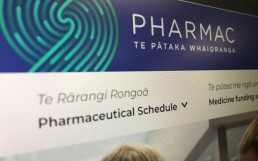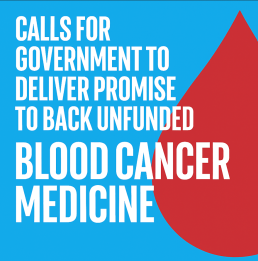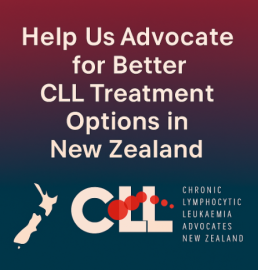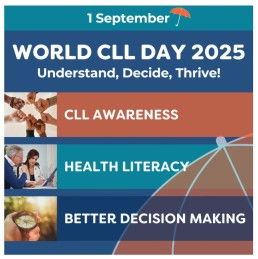Season’s Greetings – December 2025

🎄 A Message from Your Trustees - Season’s Greetings to all CLL patients, your caregivers, and whānau.
🌟 Trustee Updates
CLL Advocates NZ is becoming more active as we look ahead to a General Election less than a year away.
1. New Trustees:
We welcome Bronny Colquhoun, Craig Marshall, and Sue Osborne – all New Zealanders living with CLL who bring valuable skills to our mission.
2. Patient Support Officer:
We are pleased to appoint Ingrid Ovenstone, whose husband was recently diagnosed with CLL.
Learn more about our team on the CLL Advocates About Us page
3. We continue to benefit from the expertise of Amy Holmes, Consultant Haematologist at St George’s Cancer Care Centre in Christchurch, as our Medical Director.
4. We are also privileged to have Ruth Spearing, a distinguished New Zealand haematologist and global leader in clinical trials, as part of our advisory team.
🗣 Opinion Pieces
With election year approaching, our focus is on advocacy and patient voices.
1. Ingrid Ovenstone has written an opinion piece – read it here
2. Bronny Colquhoun’s piece is in progress and will be published soon.
3. Together with Blood Cancer NZ (formerly Leukaemia & Blood Foundation), we are contributing to a major election-year campaign for better treatment options and outcomes.
💊 Pharmac News
Rob Crozier has been participating in monthly Consumer Stakeholder meetings with Pharmac executives.
Key updates from the 10 December meeting:
1. OFI Consultation: Pharmac has decided not to proceed as proposed. They are considering alternative options and will make a formal announcement before Christmas.
2. 2026 Budget Bid: Pharmac is one of the few Government entities allowed to bid for extra funds. Most others face freezes or cuts.
🌐 CLLANZ Website Refresh
We are updating and refreshing our website to make it more useful for patients and caregivers.
If you have suggestions, please email us at info@clladvocates.org.nz.
Visit us anytime at clladvocates.nz
💌 Closing Note
Till next time… stay well.
Warm regards,
Rob Crozier
On behalf of the Trustees CLL Advocates NZ
Pharmac Proposal Risks Cutting Access to Medicines
Ingrid Ovenstone, Patient Support Officer with Chronic Lymphocytic Leukaemia Advocates NZ, warns that Pharmac’s plan to remove medicines from its Options for Investment list after two years hides chronic underfunding.
These medicines have already been proven effective and cost‑efficient, but New Zealand’s low spend on medicines - just 4.9% of the health budget compared with an OECD average of 13.3%, leaves patients waiting years for treatments that are standard overseas.
For people with conditions like chronic lymphocytic leukaemia, this means relying on outdated chemotherapies while modern oral and targeted therapies remain unfunded.
Read the article here: Pharmac Proposal Risks Cutting Access to Medicines
CLLANZ Submission on Proposed Changes to the Options for Investment List
Chronic Lymphocytic Leukaemia Advocates of New Zealand (CLLANZ) has submitted formal feedback on Pharmac’s proposal to decline a number of medical funding applications currently listed on the Options for Investment (OFI) list. Representing the interests of CLL patients, their caregivers, and specialist haematologists, our submission raises serious concerns about the potential removal of medicines that have been clinically recommended but remain unfunded.
While we acknowledge the realities of prioritisation within the funding system, we strongly oppose the blanket removal of lower-ranked medicines without transparent consultation. Our submission calls for a more robust and inclusive process - one that involves clinical sub-committees and patient advocacy groups before any decisions are made.
We invite you to read our full submission below:
"On behalf of Chronic Lymphocytic Leukaemia Advocates of New Zealand (CLLANZ) we are submitting on the proposal to decline some medical funding applications on the Options for Investment List (OFI). We do so on behalf of CLL patients, their caregivers, and haematologists with a specialist interest in this field.
Whilst we acknowledge that there will always be some aspect of “prioritising” and “rationing” when it comes to deciding which medicines to fund, we are completely opposed to the idea that a significant number of medicines currently ranked near the bottom of the list should be eliminated arbitrarily and en masse as proposed.
Drugs are placed on the OFI after being highly recommended by clinical sub-committees. We recognise that, in some cases, a particular medicine may be superseded by an improved product. However, removal of any drug from the OFI should involve these two crucial steps:
- discussions with the clinical sub-committee that made the initial recommendation; and
- a wider phase of consultation with patient and consumer groups including publication of the discussions with the clinical sub-committees.
This approach will only be successful, however, if Pharmac is more transparent with information regarding the drugs that are in these lower rankings, how long they have been on the list and what their exact rankings are.
There may be valid reasons why a medicine should remain on the list and it is essential that any group with a particular interest in a drug is given the opportunity to express its views on the matter before any decisions are made. This may even open up the possibility that a drug company would be willing to bundle in a low-ranked drug as part of a package of drugs under negotiation.
We would be pleased to discuss any aspect of this submission with you."
Ruth Spearing Rob Crozier
Chair Trustee
CLLANZ CLLANZ
Blood Cancer Patients Urge Government to Honour Drug Funding Promise
In this RNZ Checkpoint segment, blood cancer patients, clinicians, and advocates speak out about the urgent need for the New Zealand Government to fund critical medications for blood cancers, many of which remain unfunded despite pre-election commitments.
Unfulfilled Commitment: The National Party pledged to fund cancer treatments for both solid tumours and blood cancers. While solid tumour drugs received funding after public pressure, blood cancer medications were excluded from Budget 2025.
Clinical Voices:
- Dr. Rodger Tiedemann, consultant haematologist at Auckland Hospital, describes the lack of funding as a “fundamental health policy failure.”
- He and 59 haematologists co-signed a letter urging the government to act, emphasizing that blood cancer patients rely solely on medication, unlike solid tumour patients who may benefit from surgery or radiation.
Patient Impact:
- Patients with chronic lymphocytic leukaemia (CLL), lymphoma, and other blood cancers are left waiting for access to treatments that are funded in dozens of other countries.
- Many are paying privately or going without, while Pharmac’s “options for investment” list continues to grow without action.
Advocacy in Action:
- CLL Advocates NZ and other groups are calling for transparency, urgency, and equity in cancer drug funding.
- The segment underscores the emotional and financial toll on families, and the need for government accountability.
🎧 Listen to the Full Segment here
Help Us Advocate for Better CLL Treatment Options in New Zealand
My name is Rob Crozier. I’ve been living with Chronic Lymphocytic Leukaemia (CLL) since 2001, and in October last year, I became a Trustee of CLL Advocates NZ.
I took on this role after years of correspondence with Hon Shane Reti regarding the urgent concerns of CLL patients. Unfortunately, despite his election campaign promise to fund additional blood cancer treatments, that commitment was abandoned following the formation of the Coalition Government.
This year’s Budget allocated an additional $604 million to Pharmac over four years. Yet, only 10–15 CLL patients are expected to benefit. New Zealand continues to rank at the bottom of the OECD for drug funding when adjusted for GDP per capita.
Around 250 New Zealanders are diagnosed with CLL each year. Most face chemoimmunotherapy (FCR or BR*) as their first-line treatment. While these regimens can be effective for some, they are physically taxing and carry a significant risk of secondary cancers, even for those fortunate enough to achieve long-term disease control. Access to newer, targeted therapies - now standard first-line treatments in many developed countries, is only available here after relapse.
We believe all CLL patients deserve better. Our goal is to ensure that New Zealanders have access to the same treatment options as those in Australia and other comparable nations. To achieve this, we need to amplify patient voices and bring our stories to the attention of politicians and the public.
Next year is an election year, and the time to act is now. We're already working alongside Leukaemia and Blood Cancer NZ, Patient Voice Aotearoa, and the Blood Cancer Alliance to drive this campaign forward.
How you can help:
🔹 1. We’re gathering insights from the CLL community to help advocate for better treatment options in New Zealand. If you're a patient or caregiver, we’d love to hear about your experience and the area you call home.
You can choose to:
- Complete our patient survey here, to help us understand broader needs and trends
- Or simply email us with your personal story, thoughts, or concerns - whatever you feel comfortable sharing: clladvocates@outlook.co.nz
If you're a patient, please include your year of birth, gender, and preferred contact method. This helps us build a clearer picture of our community while respecting your privacy.
🔹 2. Make a Donation: To participate fully in this campaign, we need financial support. If you're able, please consider donating to CLL Advocates NZ: CLL Advocates Give a Little. All donations are tax-deductible.
Together, we can push for change and ensure that every CLL patient in New Zealand has access to the best possible care.
Warm regards,
Rob Crozier Trustee
CLL Advocates NZ
*FCR: Fludarabine/Cyclophosphamide/R
Calling for New Trustees – CLL Advocates New Zealand
These are meaningful times for our CLL community, as the patient voice is now a key part of decisions around medicine funding in Aotearoa.
We're on the lookout for new trustees to help guide our work.
The time commitment is modest, but your passion and life experience are invaluable. Help us share these important messages far and wide.
If you're interested in becoming a trustee, please email: clladvocates@outlook.co.nz before 30 September 2025 to register your interest.
Thank you.
CLL Advocates Webinar in Recognition of World CLL Day
CLL Advocates Webinar
Please join us for a Special Webinar in Recognition of World CLL Day
To mark world CLL Day, we invite you to a compelling webinar featuring Dr Graeme Jarvis, Chief Executive of Medicines New Zealand.
Dr Jarvis will share practical insights into effective advocacy - how to move from being unheard to becoming unstoppable.
As Chief Executive of Medicines New Zealand, Dr Jarvis leads the industry association representing research-based biopharmaceutical companies in Aotearoa. The organisation advocates for the benefits of modern medicines as part of a high-quality public health system,
Webinar Details
Date: Monday, 1 September
Time: 6.00pm – 7.00pm NZST
To register: Please email clladvocates@outlook.co.nz to receive the Zoom link.
We look forward to welcoming you online.
CLL Advocates August Newsletter
CLL Advocates August Newsletter
Greetings
Your Trustees have been active since we sent out our last newsletter.
Catherine Isaac, Chair, has resigned and we wish to pay tribute to her:
Thank You, Catherine Isaac
We extend our heartfelt thanks to Catherine Isaac for her dedicated service to CLL Advocates NZ since its inception. Catherine has recently retired from her role as Chair.
Her commitment, insight, and leadership have made a lasting impact on our work and the lives of those affected by CLL. From championing access to life-changing treatments to advocating for systemic change in the Pharmac model, Catherine has been a steadfast advocate and a source of wisdom and encouragement for the team. Catherine’s contributions have left a lasting legacy and we are grateful for the time and energy she has devoted to our cause.
Thank you, Catherine, for everything you’ve done.
Trustees update
Ruth Spearing (CLL Advocates Trustee) has been acting as de facto Chair and keeping us all busy! Ruth has now been elected as Chair.
Rob Crozier made a submission on the Medicines Amendment Bill in May, a copy of which is available on our website: www.clladvocates.nz
Rob was also present at the reading of the budget in Parliament at the invitation of Malcolm Mulholland (Patient Advocate Voice Aotearoa) and managed to make the case about the lack of funding for blood cancer medicines to Radio NZ. The media release has been posted on our website.
Rob has also taken on the role of participating in monthly online meetings of the Pharmac Consumer Advisory Committee which is attended by the Pharmac CEO and senior executives. Pharmac has recently established a Patient Advocacy Network chaired by Malcolm Mulholland with Tim Edmonds, CEO of Leukaemia and Blood Cancer NZ as a member.
The current key concern for us (and for haematologists) is getting Pharmac to approve the use of Venetoclax and Ibrutinib in combination. We are waiting for an update as to where it sits on the priority list. Tim Edmonds raised the need for a Modern Medicines Access Strategy — an idea that we should get behind.
Marc Pearce (Trustee) has taken on responsibility for keeping the clinical trials information on our website and Facebook page accurate and has been researching comparative international data on the proportion of Budget: Health being spent on new medicines.
Lisa Ryan (Trustee) is taking responsibility for our website, alongside Melanie Murray, our valued administrator.
TRUSTEE’S MEETING 6 August
Trustees met in an online meeting and began with a lengthy presentation from Matt Tyson, Janssen, reporting on the stalled approval process for Ibrutinib + Venetoclax for CLL. We had a long discussion about strategy for moving this forward and are now working on implementing that strategy. If you are currently self-funding this treatment or either of the drugs separately we’d like to hear from you.
Trustee vacancy
Trustees decided to defer discussion re adding an additional Trustee to the next meeting — scheduled for 8 September. If you’re reading this and feel you have something to offer watch this space...
Declaration calling for urgent government action
New Zealand’s health system is in real trouble, and a group of passionate health organisations is asking Kiwis to help turn things around.
They’re inviting everyone to sign a Declaration calling for urgent government action, and you can add your name at one of the 16 special events near you on Tuesday, 18 November 2025.
The campaign is backed by Patient Voice Aotearoa, NZNO, RNZCGP, BHAG, Hauora Taiwhenua, and ASMS. Keen to help?
Below is a flyer with information on the Wellington event.
For the other 15 locations, please head to https://www.patientvoice.nz/petition-locations to learn more.
New Zealand’s lack of access to modern medicines
A new poll commissioned by Medicines NZ has ignited political debate over New Zealand’s access to modern medicines, revealing that many citizens feel lives are at risk due to underfunding.
Conducted by Perceptive, the survey of 992 people found that 43% believe the government should fund medicines “much more,” and nearly a third know someone who has paid out-of-pocket for unfunded treatments. Access to medicines is seen as worse than in countries like Australia and the UK, and 36% of respondents said increased funding would influence their vote in the next election.
The findings have prompted finger-pointing among political parties, especially as National previously campaigned on improving access to cancer treatments. Despite a budget boost for Pharmac, New Zealand still lags behind other developed nations, and the issue is expected to be a major election-year flashpoint
Please read the article here: https://www.stuff.co.nz/nz-news/360780977/lives-are-risk-new-poll-thats-sparked-political-debate-and-finger-pointing
Zanubrutinib remains unfunded in New Zealand
Zanubrutinib has been publicly funded and accessible for the treatment Chronic Lymphocytic Leukaemia (CLL) in Australia for more than two years, offering patients a targeted therapy option with proven efficacy and tolerability.
Its availability across the Tasman highlights the growing disparity in access to innovative blood cancer treatments between Australia and New Zealand.
In light of the Government’s failure to deliver on its pre-election commitment to fund blood cancer medicines, this is a clear priority for advocacy ahead of next year’s general election.
Read more here: https://healthtree.org/cll/community/articles/zanubrutinib-leads-in-covalent-btk-inhibitors?









